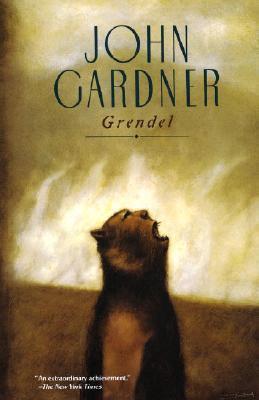Chapter 5
byChapter 5 takes place in a dark and ominous setting, where Grendel, the protagonist, finds himself face-to-face with a powerful and intimidating dragon. The creature’s sheer size dominates the surroundings, with its malevolent demeanor evoking a deep sense of cold dread. Grendel, overcome with a mixture of fear and awe, is left to crouch on all fours before this terrifying figure. The dragon’s eyes, reflecting countless memories of lost families, seem to hold an ancient wisdom and a cold indifference to Grendel’s presence. This powerful moment highlights Grendel’s vulnerability and the overwhelming dominance of the creature he faces, setting the stage for a dialogue that will challenge his very understanding of the world.
The dragon, upon recognizing Grendel, speaks with a voice that unnervingly resembles that of an old man, further heightening the discomfort Grendel feels. The creature’s laughter is laced with malice, and its taunts are aimed at mocking Grendel’s fear. With sharp claws extended, the dragon asserts its dominance, making sure Grendel understands the depth of its power and the value it places on its treasure. The dragon’s words also reveal a deep irony, as it compares its ability to inspire fear with Grendel’s own ability to elicit terror in humans. This exchange sets the stage for a philosophical exploration of fear and power, illustrating how both the dragon and Grendel play their respective roles in a world defined by terror and dominance.
As the conversation deepens, the dragon shifts its focus to knowledge and free will, presenting a worldview that sees beyond the limits of human perception. It reveals that it perceives all of time—past, present, and future—an ability that makes human concepts of free will appear insignificant and trivial. Grendel, listening intently, finds himself torn between accepting the dragon’s overwhelming wisdom and questioning the darkness that comes with such understanding. The dragon dismisses the human condition as a fleeting and absurd endeavor, contrasting its timeless existence with the limitations of human life. Grendel challenges the dragon’s dismissive view of human ambition, seeking meaning in his own existence and the possibility of progress.
The dragon’s critique of human reasoning becomes more pointed, labeling it as narrow and naive compared to the vast understanding it possesses. Human achievements are derided as meaningless, their creativity and pursuits reduced to mere distractions in the grand scheme of existence. In contrast, the dragon praises its own eternal nature, seeing itself as above the trivial concerns of humanity, fully aware of the endless cycle of life and death. Grendel, in response, seeks more than mere survival; he yearns for purpose and improvement, pushing back against the dragon’s bleak view of existence. The dialogue between the two figures becomes a battleground for ideas, with Grendel striving to find meaning in a world that the dragon believes is without value.
Despite Grendel’s resistance, the dragon advises him to embrace his role as a force of fear among humans, suggesting that terror is an essential catalyst for their growth and creativity. The dragon insists that by invoking fear, Grendel plays a pivotal role in human development, even if he doesn’t fully understand the impact of his actions. Although Grendel is reluctant to accept this notion, the dragon’s insistence underscores the paradoxical nature of their existence: that creation and destruction, fear and inspiration, are inextricably linked. The dragon’s advice challenges Grendel to confront his instincts and the role he plays in a world where fear is both a weapon and a driving force. As the chapter unfolds, themes of power, fear, and the purpose of existence emerge, leaving Grendel to grapple with his identity and the deeper meaning of his existence. The interplay between creator and creation highlights the complexities of life, leaving Grendel caught between his brutal instincts and his desire to understand the world more profoundly.

